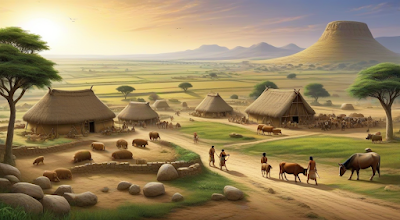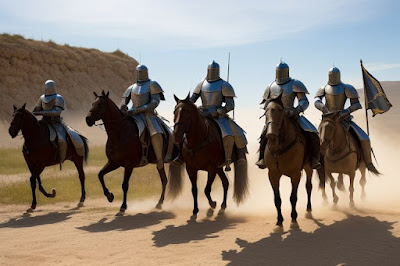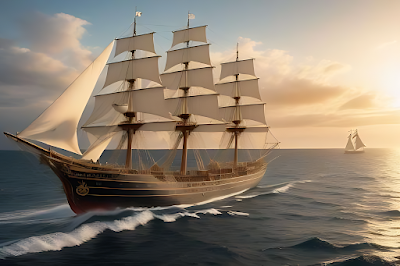The Layers of Historical Events
I. Brief Introduction
Historical events are the milestones and turning points that have shaped human civilization, influencing cultures, societies, and nations across time. These events encompass wars, revolutions, discoveries, and movements that have had profound impacts on the course of history. Understanding historical events is essential for comprehending the present and anticipating the future. By studying these events, we gain insights into human behavior, societal evolution, and the forces that drive change.
In this blog post, we will delve into significant historical periods and events, exploring their causes, impacts, and legacies. We will journey through time, from the early days of human civilization to the transformative events of the 20th century, unraveling the layers that have shaped our world.
II. Early Historical Events
Neolithic Revolution
The Neolithic Revolution, which began around 10,000 BCE, marked a significant turning point in human history as societies transitioned from nomadic hunting and gathering to settled agricultural communities. This period saw the domestication of plants and animals, leading to the development of farming. The ability to produce surplus food allowed populations to grow and settle in one place, giving rise to the first villages and cities.
Impact on Human Society
The shift to agriculture had profound effects on human society. It led to the development of social hierarchies, specialization of labor, and advancements in technology. With stable food supplies, people could pursue other activities, leading to innovations in tool-making, pottery, and weaving.
Ancient Civilizations
The Neolithic Revolution set the stage for the rise of ancient civilizations, which emerged in various parts of the world.
Egypt, Mesopotamia, Indus Valley
Egypt : Known for its monumental architecture, such as the pyramids and the Sphinx, ancient Egypt was a civilization that thrived along the Nile River. Its society was characterized by a centralized government, a complex religion, and advancements in writing and mathematics.
Mesopotamia : Located between the Tigris and Euphrates rivers, Mesopotamia is often called the "cradle of civilization." It was home to the Sumerians, Akkadians, Babylonians, and Assyrians, who made significant contributions to writing (cuneiform), law (Code of Hammurabi), and astronomy.
Indus Valley : The Indus Valley Civilization, located in present-day Pakistan and northwest India, was known for its advanced urban planning, architecture, and social organization. Cities like Harappa and Mohenjo-Daro featured sophisticated drainage systems and standardized weights and measures.
Technological Innovations and Cultural Developments
These early civilizations made remarkable technological and cultural advancements. They developed writing systems, complex religious beliefs, and innovations in agriculture and engineering. These developments laid the foundation for future civilizations and greatly influenced the course of history.
III. Classical Period
Rise and Fall of Greek Civilization
The classical period saw the rise of Greek civilization, which left an indelible mark on Western culture.
Democracy in Athens
Athens is often celebrated as the birthplace of democracy, where citizens participated directly in decision-making. This system of governance, although limited to free males, laid the groundwork for modern democratic practices.
Philosophical Contributions
Greek philosophers, such as Socrates, Plato, and Aristotle, made significant contributions to Western thought. Their works explored ethics, politics, metaphysics, and epistemology, shaping the intellectual landscape of the ancient world and beyond.
Roman Empire
The Roman Empire, which succeeded the Greek civilization, was one of the most powerful empires in history.
Military Conquests and Governance
Rome's military prowess enabled it to conquer vast territories, stretching from Britain to Egypt. The Roman legions were known for their discipline, organization, and innovative tactics. The empire's governance was characterized by a complex bureaucracy and a legal system that emphasized law and order.
Influence on Modern Legal Systems
The Roman legal system has had a lasting influence on modern legal systems. Concepts such as the presumption of innocence, trial by jury, and legal representation trace their origins to Roman law.
IV. Medieval Times
Feudalism
The medieval period was marked by the rise of feudalism, a hierarchical system that structured society.
Social Structure
Feudal society was divided into classes, with kings and nobles at the top, followed by knights, clergy, and peasants. Land was the primary source of wealth, and lords granted land to vassals in exchange for military service and loyalty.
Knights and Chivalry
Knights were the military elite of the medieval period, bound by a code of chivalry that emphasized bravery, loyalty, and honor. The romanticized image of knights in shining armor remains a symbol of medieval culture.
Crusades
The Crusades were a series of religious wars sanctioned by the Latin Church, aimed at reclaiming the Holy Land from Muslim rule.
Religious Wars
The Crusades had a profound impact on both Europe and the Middle East, leading to centuries of conflict, cultural exchange, and the spread of ideas and technologies between the East and West.
Trade and Cultural Exchange
The Crusades stimulated trade and cultural exchange between Europe and the Middle East. They introduced Europeans to new goods, such as spices and textiles, and ideas, such as advancements in science and medicine.
V. Age of Exploration
Voyages of Columbus
The Age of Exploration was marked by daring voyages across uncharted waters. Christopher Columbus's expedition in 1492, sponsored by Spain, led to the European discovery of the Americas. This event marked the beginning of a new era of global exploration and colonization.
European Exploration of the Americas
European explorers, driven by the desire for wealth and knowledge, ventured into the Americas, establishing colonies and trading posts. This period saw the exchange of goods, ideas, and cultures between the Old and New Worlds, known as the Columbian Exchange.
Magellan's Circumnavigation
Ferdinand Magellan's expedition, completed in 1522, was the first to circumnavigate the globe, proving that the Earth was round and vastly expanding European knowledge of the world. This journey demonstrated the interconnectedness of the world's oceans and opened new possibilities for global trade.
Global Impact of New Trade Routes
The Age of Exploration had a profound impact on global trade. New trade routes were established, connecting Europe, Africa, Asia, and the Americas. The exchange of goods, ideas, and cultures reshaped societies and economies worldwide, setting the stage for the modern era.
VI. Industrial Revolution
Technological Advancements
The Industrial Revolution, which began in the late 18th century, was a period of rapid technological advancement and industrialization.
Steam Engine, Telegraph, Cotton Gin
Steam Engine : The steam engine, developed by James Watt, revolutionized transportation and manufacturing, enabling factories to operate more efficiently and powering locomotives and ships.
Telegraph : The telegraph, invented by Samuel Morse, transformed communication, allowing messages to be sent over long distances almost instantaneously.
Cotton Gin : Eli Whitney's cotton gin revolutionized the textile industry by significantly speeding up the process of separating cotton fibers from seeds.
Urbanization and Social Changes
The Industrial Revolution led to urbanization, as people moved from rural areas to cities in search of work. This shift resulted in significant social changes, including the rise of a working-class population and the growth of a middle class.
Labor Conditions and Reform Movements
The rapid industrialization brought harsh labor conditions, prompting the rise of reform movements advocating for workers' rights, fair wages, and improved working conditions. Labor unions emerged, fighting for the rights and welfare of workers.
VII. 20th Century Events
World Wars
The 20th century was marked by two devastating world wars that reshaped the global order.
Causes and Consequences
World War I : Triggered by a complex web of alliances and rivalries, World War I resulted in unprecedented destruction and loss of life. The Treaty of Versailles, which ended the war, imposed harsh penalties on Germany, sowing the seeds for future conflict.
World War II : The rise of totalitarian regimes and unresolved issues from World War I led to World War II. The war's aftermath saw the emergence of the United States and the Soviet Union as superpowers and the establishment of the United Nations to prevent future conflicts.
Civil Rights Movement
The Civil Rights Movement in the United States was a pivotal struggle for equality and justice for African Americans and other marginalized groups.
Struggles for Equality and Justice
The movement, led by figures like Martin Luther King Jr., Rosa Parks, and Malcolm X, sought to end racial segregation and discrimination through nonviolent protests, legal challenges, and advocacy. Landmark legislation, such as the Civil Rights Act of 1964 and the Voting Rights Act of 1965, marked significant victories in the fight for civil rights.
Space Exploration
The 20th century also witnessed remarkable achievements in space exploration.
Moon Landing and Beyond
The Space Race between the United States and the Soviet Union culminated in the Apollo 11 mission, which landed humans on the moon in 1969. This achievement demonstrated human ingenuity and opened new frontiers for exploration and scientific discovery.
VIII. In the end
Reflecting on the significance of historical events, we gain a deeper understanding of the forces that have shaped our world. History is a tapestry woven with the threads of triumphs and tragedies, innovations and conflicts, and the enduring spirit of human endeavor.
As we continue to learn about the past, we are better equipped to navigate the complexities of the present and chart a course for the future. I encourage readers to delve deeper into specific events, explore the stories of those who lived through them, and appreciate the rich tapestry of history that continues to influence our lives today.
















.jfif)

.jfif)

.png)
Comments
Post a Comment